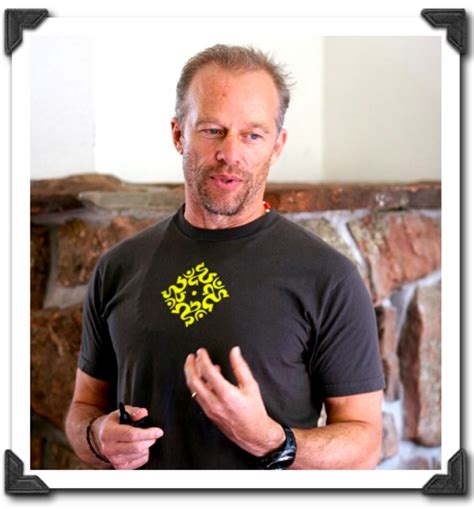A Quote by Frederick Lenz
Of the four major pathways to self-realization, jnana yoga, from the point of view of the beginner, is the most difficult.
Quote Topics
Related Quotes
So the most difficult thing is always to keep your beginner's mind. There is no need to have a deep understanding of Zen. Even though you read much Zen literature, you must read each sentence with a fresh mind. You should not say, "I know what Zen is," or "I have attained enlightenment." This is also the real secret of the arts: always be a beginner. Be very very careful about this point. If you start to practice zazen, you will begin to appreciate your beginner's mind. It is the secret of Zen practice.
The point of yoga is to develop a level of clarity and self-understand ing so that when we’re done doing our yoga practice we make really good decisions, because that will determine whether we’re fulfilled. Not the quality of our poses. But really the yoga is what happens when we’re done practicing yoga.
Yoga, an ancient but perfect science, deals with the evolution of humanity. This evolution includes all aspects of one's being, from bodily health to self realization. Yoga means union - the union of body with consciousness and consciousness with the soul. Yoga cultivates the ways of maintaining a balanced attitude in day to day life and endows skill in the performance of one's actions.
Lord Krishna... proclaims Self-realization, true wisdom, as the highest branch of all human knowledge-the king of all sciences, the very essence of dharma ("religion")-for it alone permanently uproots the cause of man's threefold suffering and reveals to him his true nature of Bliss. Self-realization is yoga or "oneness" with truth-the direct perception or experience of truth by the all-knowing intuitive faculty of the soul.
Jnana is given neither from outside nor from another person. It can be realised by each and everyone in his own Heart. The jnana Guru of everyone is only the Supreme Self that is always revealing its own truth in every Heart through the being-conciousness 'I am, I am.' The granting of true knowledge by him is initiation into jnana. The grace of the Guru is only that Self-awareness that is one's own true nature. It is the inner conciousness by which he is unceasingly revealing his existence. This divine upadesa is always going on naturally in everyone.
To think that practice and realization are not one is a heretical view. In the Buddha Dharma, practice and realization are identical. Because one's present practice is practice in realization, one's initial negotiating of the Way in itself is the whole of original realization. Thus, even while directed to practice, one is told not to anticipate a realization apart from practice, because practice points directly to original realization.




























